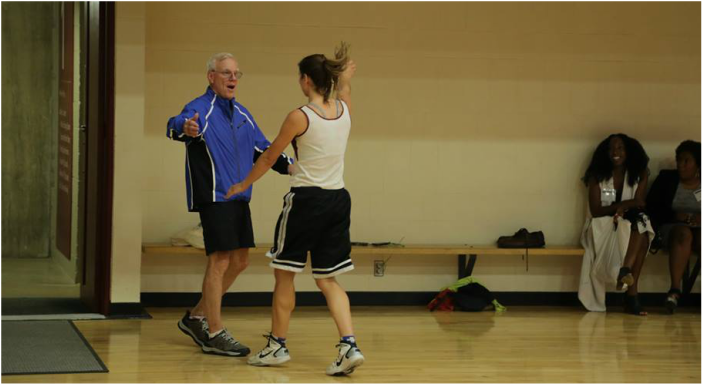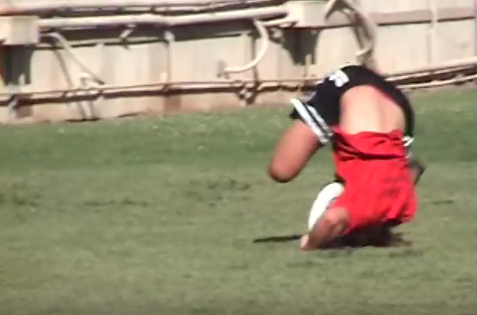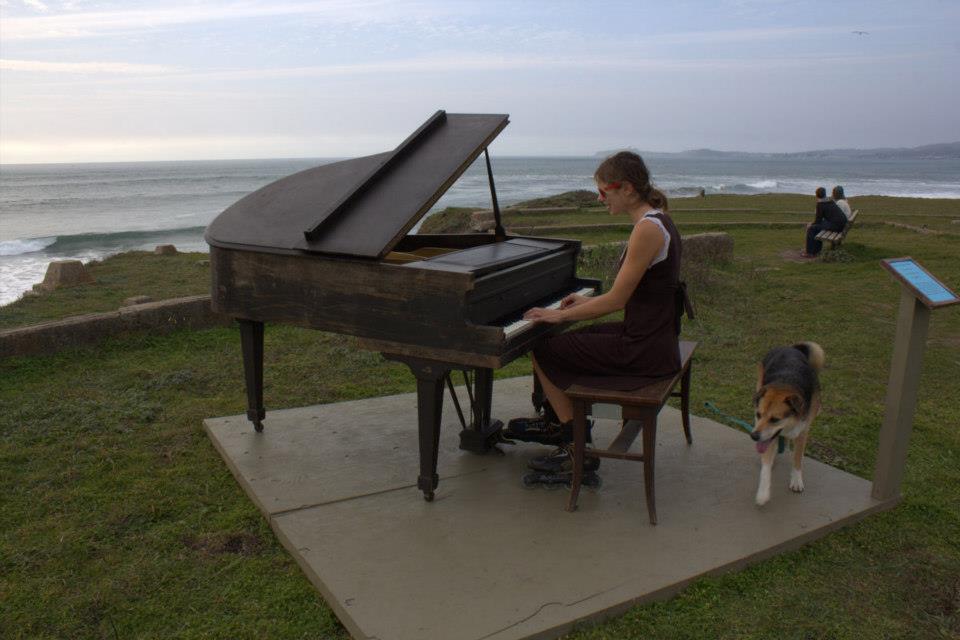You Won’t Believe What This Cop Did After Disarming a Robber, or How to be Better at Everything8/10/2015
A while back, I attended an Urban Escape and Evasion talk given by Kevin Reeve, founder of onPoint Tactical Training School and former Navy SEAL instructor. He shared the following story (which I’m totally paraphrasing):
A police officer I knew decided that he wanted to learn how to disarm a criminal. So I taught him how – and I instructed him, “In order to actually be able to do this under pressure, you need to practice. Every single day.” So he did! He went home and he practiced every single day with his wife, who had the patience of a saint. Every day, she would point an unloaded gun at him, and he would disarm her. Over and over and over, for 15, 30, 45 minutes! And then – lo and behold! – one day, this officer visited a convenience store in a seedy neighborhood. While he was there, an armed robber attempted to hold up the store. Just like he’d practiced – thousands of times! – the officer safely, successfully disarmed the robber. But then… he did the strangest thing.
...
... He handed the gun back to the robber. Why? Because he was performing like he’d practiced. All those thousands of times he’d practiced with his wife, he would disarm her, hand the gun back to her, and disarm her again. So that’s exactly what he ended up doing in real life. Reeve also told the much more tragic story of a woman who bought a gun for self-defense. She did the responsible thing and took it to the gun range regularly. (Please don’t own a gun if you don’t know how to use it.) But then, one day, a man followed her home from a restaurant, attacked her… and raped her (which, by the way, is exceptionally rare. As I wrote in 3 Things I Wish All Women Knew, you’re not going to get raped by a stranger in an alley. You’re going to get raped by a friend, classmate, boss, coworker or romantic partner. Statically, that’s just how it happens). The whole time, she had her gun in her purse, right by her side. She just never used it.
Why? Because knowing how to fire a weapon is very different from drawing one out of your purse with the intention of killing someone in self-defense. Nothing about her muscle memory or mental rehearsal prepared her for what using her gun would actually be like.
All this is a much fancier way of saying (as Mr. Mahoney used to tell me at basketball practice), “Practice doesn’t make perfect. Perfect practice makes perfect.” Mr. Mahoney is sort of a basketball legend. He’s won hundreds of national championships – without even leaving his driveway! Because every time he practices, and even when he’s just shooting around, his mind is going. He’s thinking about where the pass is coming from – where his defender is! He’s thinking about how many seconds are on the clock. And this mental rehearsal is just as important as the physical rehearsal. Similarly, his players don’t practice free throws at the beginning of practice or after a water break. They practice them after finishing their hardest drills – because, in a game, you don’t take free throws when you’re fresh. You take them when you’re breathless, frustrated and exhausted.
The legend himself.
In other words, if you want to be better at everything, you need to practice – exactly like you would play. Whatever that means for your sport or endeavor.
If you’re a Frisbee player, don’t stand and wait for the disc when you play catch. Run through it. Are you really planning on catching the disc while standing still during a game? And when you’re throwing – don’t just stand there, still and straight, while you toss the disc. Work on pivoting. Faking. Imagine where the defenders are and where your cutter’s going.
This is how I practice!
If you’re a pianist, don’t stop and repeat the part you just played if (when) you make a mistake. Would you do this at a recital? No. When you’re first learning a new piece, I guess it’s fine. But when you’re trying to perfect something, you need to practice like you’re performing.
If you’re practicing your volleyball spikes, don’t just swing your arm at the ball. Think about where the block is. Find the hole in the defense. Pick a spot on the floor and put the ball there.
If you’re learning ballet (as I tried to do recently), and you start to lose your balance when you're on demi-pointe (or anything), don’t just stand there wobbling. According to my dance teacher, Erik, people who wobble at practice… wobble when they perform. If you lose your balance, come down, and try again. Practice like you want to perform. In fact, Erik said in class once, if you’re a dancer, you start performing the moment you enter a room. Directors and judges watch the way you open the door, walk, and put on your shoes. They watch the way you warm up. They watch your pirouette. “Your body can either exude energy – and just send it out all over the room, like this! -- or it can make you look flat and closed off,” he told me.
But that’s not the only reason I recommend perfect practice. Perfect practice forces you to be mindful. It keeps your posture strong and your mind focused. This is important because:
1. The key to happiness, as I’ve said so many times, is mindfulness. When you eat mindfully, you enjoy your meals more. When you walk mindfully, you notice the beautiful flowers, artwork and interactions around you. (You’re also less likely to get mugged.) When you listen mindfully, you connect more deeply with those around you – and actually improve your charisma. 2. As I’ve also said so many times, adult playfulness is crucial to your mental health, happiness and creativity. One form of play that we see less in adults than children (except for helicopter-parented ones, who are doomed to grow up to be sad and anxious adults) is rough-and-tumble play. One that I think is even rarer… is imaginary play. Some adults participate in role-playing games – or sexual role-playing. Beyond that, it’s hard to think examples of adults using their imaginations to play. I do it sometimes – I write songs about imaginary circumstances, or I daydream about all the cool things I would do if I were the best person in the world at everything. At the pool, I love to make up new games about Captain Hook and crocodiles and mermaids (interestingly, when I do this, children sometimes begin parallel playing, using the same characters, goals and novel forms of violence that I'm using). And, when I play catch or shoot around, I imagine playing with an imaginary opponent. Based on this anecdotal experience, as well as my intuition as a play expert (which, is, like, totally scientific), I think that imaginary play is good for the soul. Even in small doses.
Sometimes when I kayak, I imagine cox calls in my head. And sometimes when I kayak, I actually cox call myself or my partner. :P
3. Just as the key to happiness is mindfulness, the key to unhappiness is rumination – which, in psychology, means repeated (and sometimes intrusive) negative thoughts. If you’re someone who’s prone to rumination, you can disrupt the pattern by focusing your thoughts on an imaginary scenario. When I’m in a bad mood, it’s really easy to go to basketball shoot around lazily, distractedly. But by training yourself to think about, you know, the game you go out there and die for, you can cut a lot of that rumination out of your life while improving your abilities more quickly.
Perfect practice is good for you. It helps you improve faster. It makes your mindful. It reduces rumination. And it could even spark your imagination. So practice perfect practice. Or... perfect practice perfect practice? Perfect perfect practice? You get the idea. And now, I leave you with this:
2 Comments
Koneko
8/27/2015 01:08:51 pm
I like this post a lot. I believe that mindfulness is often neglected in our lives -- I know I spend far too much time just "drifting through" -- so this is an excellent reminder to be an active participant even if you are doing something stationary. :)
Reply
4/10/2017 08:40:53 am
The mind and imagination is powerful. Dr. Joe Dispenza talks about how a person's brain lights up the same if they are just imagining doing something as those who are doing it.
Reply
Leave a Reply. |
About the Author

Eva is a content specialist with a passion for play, travel... and a little bit of girl power. Read more >
Want to support The Happy Talent? CLICK HERE!
Or Find me on Patreon!
What's Popular on The Happy Talent:
Trending in Dating and Relationships:
What's Popular in Science: Playfulness and Leisure Skills:
Popular in Psychology and Social Skills:
Categories
All
|


































 RSS Feed
RSS Feed